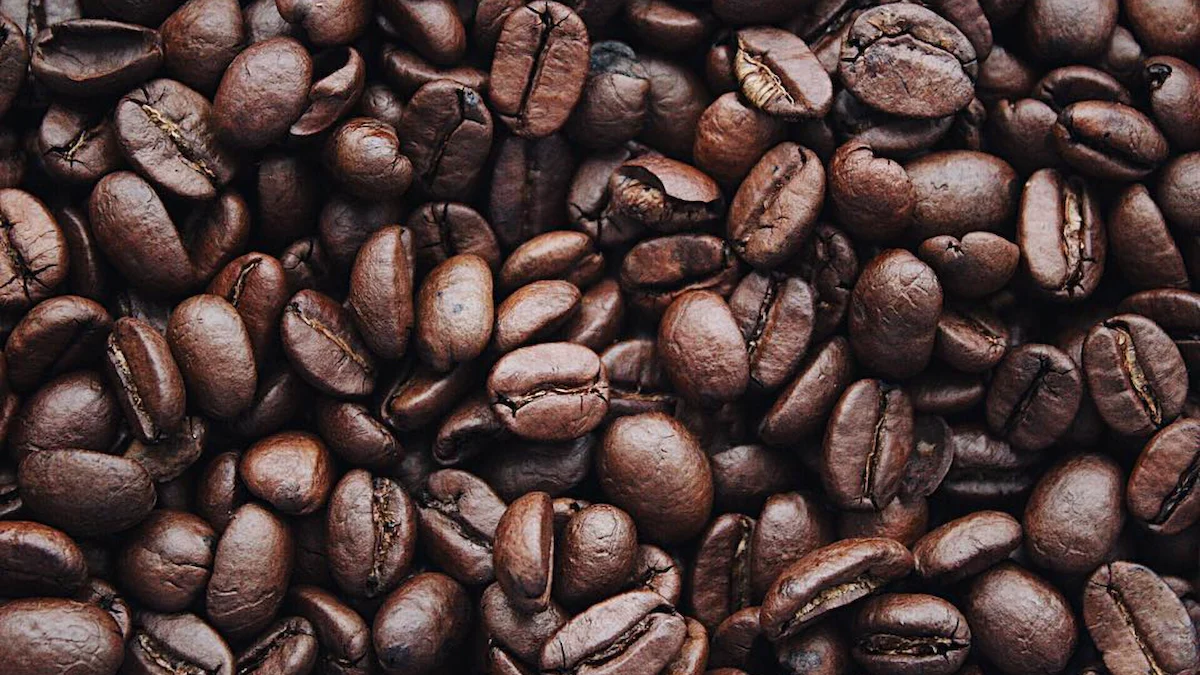FTC/ASA Disclosure: Some links in this post are affiliate links. At no additional cost to you, I will earn commission if you purchase via my links. Thank you in advance for your support! 🙏 It means a lot to me. ❤️
Understanding Caffeine Content in Coffee
When it comes to coffee, caffeine is the star of the show. But have you ever wondered how much caffeine is actually in your cup? In this section, we will delve into the truth about caffeine in coffee and explore the different levels found in various types of coffee. We will also discuss the factors that can affect the caffeine content, giving you a better understanding of what goes into your daily dose of energy. So grab your favorite mug and let's uncover the secrets behind caffeine in coffee!
Factors Affecting Caffeine Content
When it comes to the caffeine content in coffee, several factors come into play. Let's take a closer look at these factors and how they can affect the amount of caffeine in your cup.
Coffee Bean Type and Roast Level
The type of coffee bean used and the roast level can have a significant impact on caffeine content. Generally, dark roast coffees tend to have slightly less caffeine than light roast coffees. This is because the longer roasting process breaks down some of the caffeine molecules. Additionally, Arabica beans typically contain less caffeine compared to Robusta beans. So if you're looking for a stronger kick of caffeine, opting for a light roast with Robusta beans might be your best bet.
Brewing Method
The brewing method you choose also plays a role in determining the caffeine content in your coffee. Drip coffee and espresso are two common brewing methods that yield different results. Drip coffee generally has more caffeine per serving compared to espresso due to the longer extraction time. On the other hand, espresso shots are typically consumed in smaller quantities but pack a concentrated punch of caffeine.
Other brewing methods like French press and cold brew can also affect caffeine levels. French press coffee tends to have higher levels of caffeine compared to drip coffee due to its longer steeping time. Cold brew, on the other hand, is brewed using cold water over an extended period, resulting in a smoother flavor but slightly lower caffeine content.
Grind Size and Extraction Time
The grind size of your coffee beans and the extraction time during brewing can impact how much caffeine is extracted into your cup. Finely ground coffee has more surface area exposed to water during brewing, which leads to faster extraction and potentially higher caffeine content. Conversely, coarsely ground coffee may result in slower extraction and lower levels of caffeine.
Extraction time also plays a role in determining caffeine levels. Shorter extraction times, such as those used in espresso brewing, may result in a higher concentration of caffeine per ounce. On the other hand, longer extraction times, like those used in cold brew methods, can extract more caffeine overall but with a lower concentration.
By understanding these factors that affect caffeine content, you can make more informed choices about the type of coffee and brewing method that suits your desired caffeine intake.
Determining the Amount of Caffeine in Your Coffee
If you're curious about the exact amount of caffeine in your coffee, there are a few methods you can use to determine it. Let's explore these methods and how they can help you gauge the caffeine content in your cup.
Label Information
One of the easiest ways to find out the caffeine content in your coffee is by reading the label on the packaging. Many coffee brands provide this information, either per serving or per package. Keep in mind that serving sizes can vary, so it's essential to understand what constitutes a single serving. By checking the label, you can get a rough estimate of how much caffeine you're consuming with each cup.
Testing Kits
For those who want more precise measurements, home testing kits are available to measure caffeine content. These kits typically involve extracting caffeine from a sample of brewed coffee using specific chemicals and then analyzing it using colorimetric methods. While these kits can give you a more accurate measurement than label information, they do have some limitations. Factors such as user error and variations in extraction methods may affect accuracy.
Professional Testing
If you require highly accurate and reliable results, professional testing is an option worth considering. You can send samples of your coffee to a lab that specializes in caffeine analysis. These labs use sophisticated equipment and techniques to measure the exact amount of caffeine present. However, professional testing may come at a cost and may not be readily available for everyone.
By utilizing label information, testing kits, or professional testing services, you can gain insights into the amount of caffeine in your coffee. This knowledge allows you to make informed decisions about your caffeine intake and adjust accordingly based on your preferences or health considerations.
Effects of Caffeine on the Body
Caffeine is known for its stimulating effects on the body, but it's essential to understand both the positive and potential negative impacts it can have. Let's explore how caffeine affects the body and some factors that can influence individual responses.
Stimulant Properties
One of the primary reasons people consume caffeine is for its stimulant properties. Caffeine can increase alertness and energy levels, helping you feel more awake and focused. It stimulates the central nervous system, promoting the release of neurotransmitters like dopamine and norepinephrine, which can improve cognitive function and enhance mood.
Potential Side Effects
While caffeine can provide a temporary boost, it's important to be aware of potential side effects. Consuming too much caffeine or consuming it too close to bedtime can lead to insomnia or disrupted sleep patterns. Additionally, high doses of caffeine may cause increased heart rate and blood pressure in some individuals. It's crucial to listen to your body and be mindful of your caffeine intake to avoid these potential side effects.
Individual Sensitivity
Individuals vary in their sensitivity to caffeine due to several factors. Some people have a higher tolerance for caffeine and may require larger amounts to experience its effects. On the other hand, some individuals are more sensitive to even small doses of caffeine, experiencing jitters or anxiety with minimal consumption.
Genetic factors also play a role in how our bodies metabolize caffeine. Variations in genes involved in caffeine metabolism can influence how quickly or slowly we process and eliminate caffeine from our system. This genetic variability contributes to differences in individual responses to caffeine.
By understanding both the stimulating properties and potential side effects of caffeine, as well as recognizing individual variations in sensitivity, you can make informed decisions about your consumption and tailor your intake according to your own needs and preferences.
Tips for Managing Caffeine Intake
While caffeine can provide a much-needed energy boost, it's important to consume it in moderation and be mindful of your intake. Here are some tips to help you manage your caffeine consumption effectively.
Moderation and Awareness
Setting limits on your daily caffeine consumption is key to maintaining a healthy balance. The recommended daily limit for most adults is around 400 milligrams, which is roughly equivalent to four cups of brewed coffee. However, individual tolerances may vary, so it's essential to listen to your body and adjust accordingly.
It's also crucial to be aware of hidden sources of caffeine. Besides coffee, caffeine can be found in other beverages like tea, energy drinks, and even some sodas. Chocolate and certain medications may also contain caffeine. By being mindful of these sources, you can better control your overall caffeine intake.
Alternative Options
If you're looking to reduce your caffeine intake or simply want alternatives, there are plenty of options available. Decaffeinated coffee provides the familiar taste without the stimulating effects of caffeine. Herbal teas and caffeine-free beverages offer a wide range of flavors and can be enjoyed throughout the day without affecting sleep or causing jitters.
Timing and Sensitivity
The timing of your caffeine consumption can also impact its effects on your body. It's generally advisable to avoid consuming caffeine close to bedtime as it can interfere with sleep quality. If you're sensitive to the stimulating effects of caffeine, consider reducing or eliminating it from your afternoon or evening routine.
Lastly, pay attention to how your body responds to caffeine. Everyone reacts differently, so listen to any signs or symptoms that indicate you may need to adjust your intake. If you experience jitters, anxiety, or disrupted sleep after consuming caffeinated beverages, it may be a sign that you need to cut back.
By practicing moderation, exploring alternative options, considering timing and sensitivity factors, you can effectively manage your caffeine intake and enjoy the benefits of coffee without any unwanted side effects.
In Conclusion
In conclusion, the caffeine content in coffee can vary significantly depending on various factors such as the type of coffee bean, roast level, brewing method, and extraction time. Determining the amount of caffeine in your coffee can be achieved through label information or more precise testing methods like home testing kits or professional analysis.
While caffeine has stimulant properties that can increase alertness and cognitive function, it's important to be mindful of potential side effects such as insomnia and increased heart rate. Individual sensitivity to caffeine can also vary due to genetic factors and variations in caffeine tolerance.
By understanding these aspects and following tips for managing caffeine intake, you can enjoy your cup of coffee while maintaining a healthy balance. Remember to consume caffeine in moderation, explore alternative options when needed, and pay attention to timing and your body's response. Cheers to a well-informed coffee experience!
Brewhilda.com is a participant in the Amazon Services LLC Associates Program, an affiliate advertising program designed to provide a means for sites to earn advertising fees by advertising and linking to Amazon.com.










